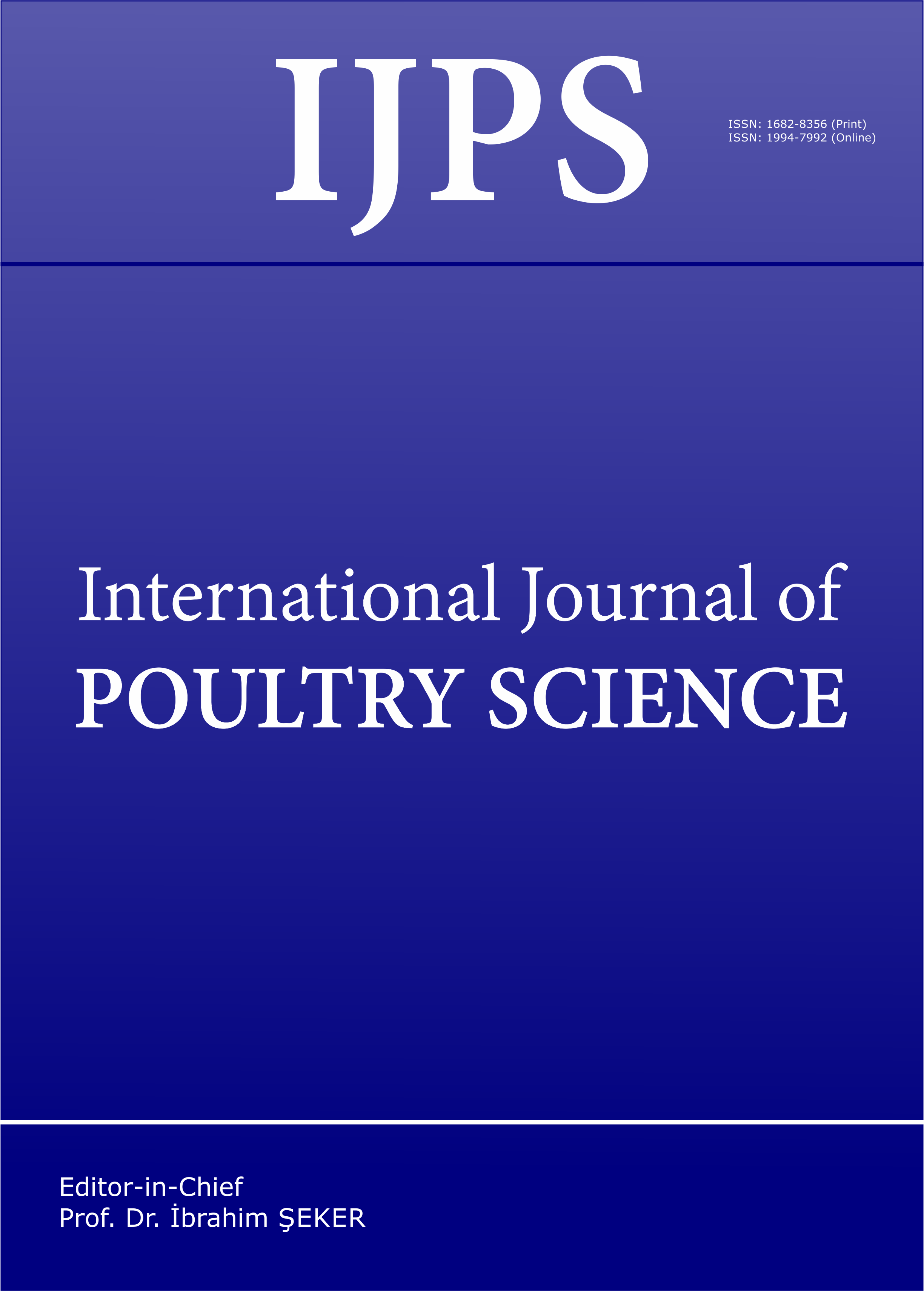Performance of Broiler Chickens on Commercial Diets Mixed with Whole or Ground Wheat of Different Varieties
DOI:
https://doi.org/10.3923/ijps.2003.62.70Keywords:
Broiler chickens, enzyme, viscosity, wheat variety, whole wheatAbstract
To study the effects of mixing commercial diets with whole wheat on
bird performance with respect to growing ages, each of four whole or
ground wheat varieties was mixed with commercial diets at the presence
or absence of enzyme at the following rates: 10% from 7 to 14 d of age,
20% from 14 to 21 d of age, 30% from 21 to 28 d of age, and 50% from
28 to 35 d of age. A control group of broiler chickens was fed only
with commercial diets throughout. Birds performed well with the diets
mixed with 10 and 20% wheat whether ground or whole. Feed intake of
birds significantly (P<0.05) depressed only by the diets mixed with
50% of both whole and ground wheat. Weight gain and feed conversion
ratio significantly (P<0.05) reduced with the diets mixed with 30 and
50% whole and ground wheat. There were no significant effects of wheat
variety, wheat form and enzyme addition on the bird performance. Enzyme
did not improve the performance of birds fed with the diets containing
whole or ground wheat although there was a significant reduction in
the digesta viscosity. Gut length was significantly longer in the birds
fed on all the diets mixed with ground or whole wheat than the birds
of control diets. It is concluded that birds can control feed intake
unless they are not fed with the 50% wheat mixed diet until 28 d of
age and grow optimally unless they are not fed with the 30% wheat mixed
diet from 21 to 28 d of age. Furthermore, it is suggested that the fortification
with some essential nutrients is necessary at early growing ages when
mixing the diets with whole/ground wheat at high rates of <30%.
Downloads
Published
Issue
Section
License
Copyright (c) 2003 Asian Network for Scientific Information

This work is licensed under a Creative Commons Attribution 4.0 International License.
This is an open access article distributed under the terms of the Creative Commons Attribution License, which permits unrestricted use, distribution and reproduction in any medium, provided the original author and source are credited.

